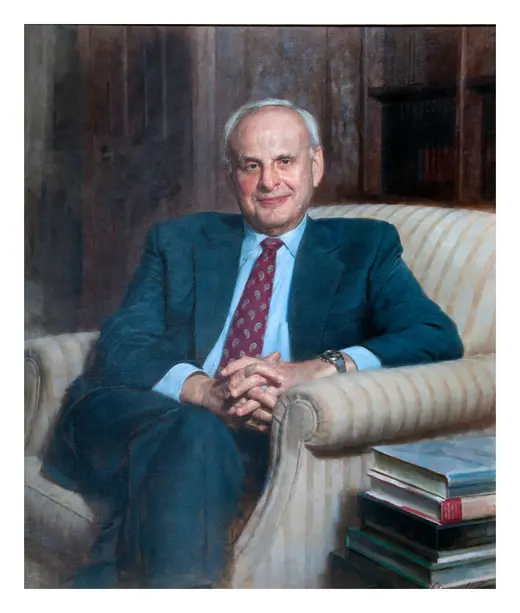In Memoriam: Leslie H. Gelb
CFR President Emeritus Leslie H. Gelb passed away on August 31, 2019, at age eighty-two.
By experts and staff
- Published

The Council on Foreign Relations mourns the passing of Dr. Leslie H. Gelb, CFR’s president emeritus and a dedicated member for 46 years. A Pulitzer Prize-winning New York Times correspondent and senior official in the Departments of State and Defense, Dr. Gelb devoted his life to the study and practice of foreign policy. For his exemplary public service he was honored with the State Department’s Distinguished Honor Award and the Defense Department’s Distinguished Civilian Service Award.
While president of CFR from 1993 to 2003, Dr. Gelb modernized the institution to reflect the new realities of the post-Cold War era. He expanded the David Rockefeller Studies Program, hiring dozens of additional fellows and broadening the think tank’s areas of expertise. Acknowledging the need for better understanding of the nexus between economic and geopolitical forces, Dr. Gelb founded the Maurice R. Greenberg Center for Geoeconomic Studies. Dr. Gelb also diversified CFR membership and expanded the organization’s reach beyond New York and Washington. Under his leadership, CFR focused its efforts on nurturing the next generation of foreign policy leaders through the development of the Stephen M. Kellen Term Member Program. The numerous new programs Dr. Gelb instituted remain a hallmark of the Council and a symbol of his enduring impact on the institution.
More on Leslie H. Gelb
“Remembering Leslie H. Gelb,” by Anne Bernard
Power Rules: How Common Sense Can Rescue American Foreign Policy, by Leslie H. Gelb
“GDP Now Matters More Than Force,” by Leslie H. Gelb